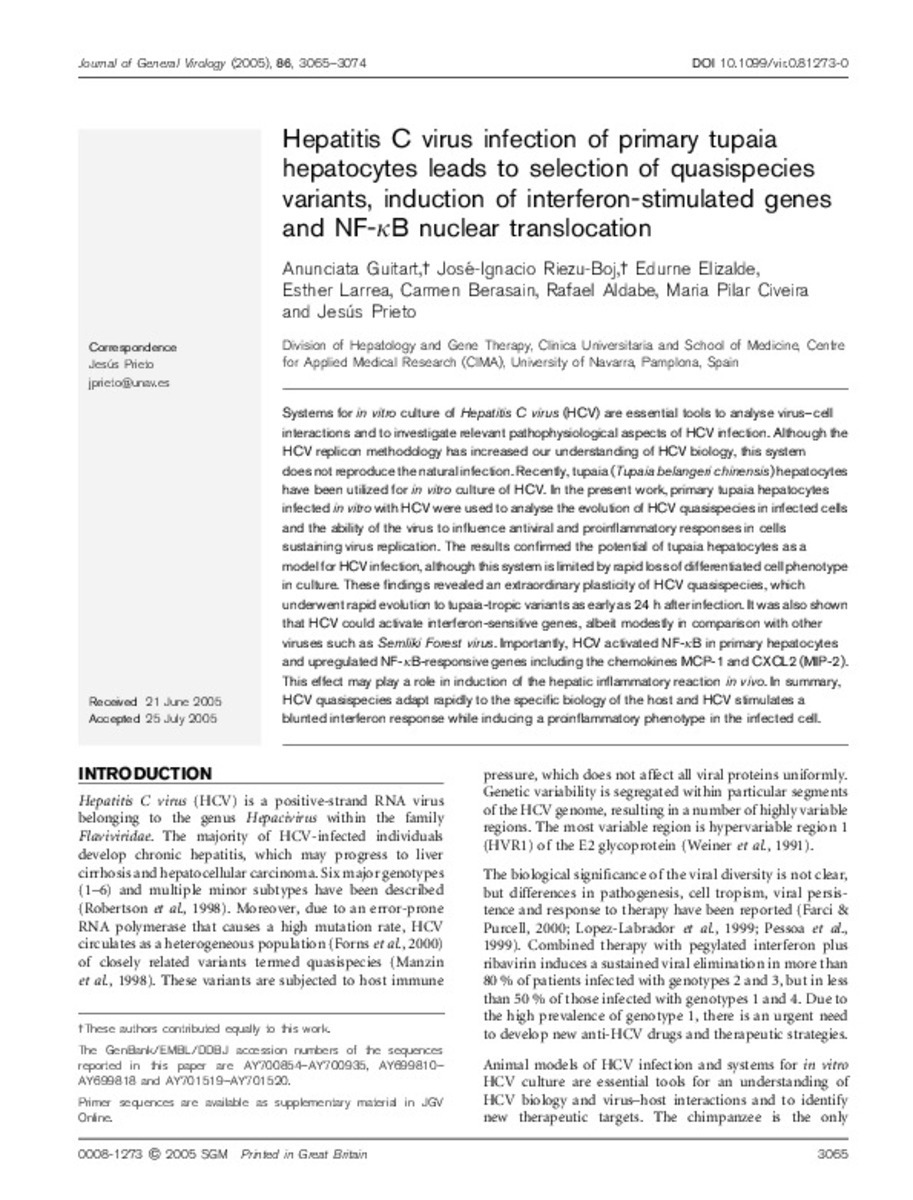Hepatitis C virus infection of primary tupaia hepatocytes leads to selection of quasispecies variants, induction of interferon-stimulated genes and NF-kappaB nuclear translocation
Palabras clave :
Hepacivirus/physiology
Hepatitis C/metabolism
Hepatocytes/virology
NF-kappa B/metabolism
Tupaia/virology
Fecha de publicación :
2005
Editorial :
Society for General Microbiology
Cita:
Guitart A, Riezu-Boj JI, Elizalde E, Larrea E, Berasain C, Aldabe R, et al. Hepatitis C virus infection of primary tupaia hepatocytes leads to selection of quasispecies variants, induction of interferon-stimulated genes and NF-kappaB nuclear translocation. J Gen Virol 2005 Nov;86(Pt 11):3065-3074.
Aparece en las colecciones:
Estadísticas e impacto
0 citas en

0 citas en

Los ítems de Dadun están protegidos por copyright, con todos los derechos reservados, a menos que se indique lo contrario.









